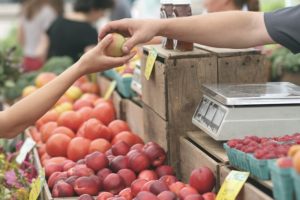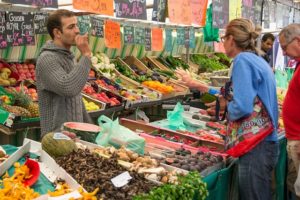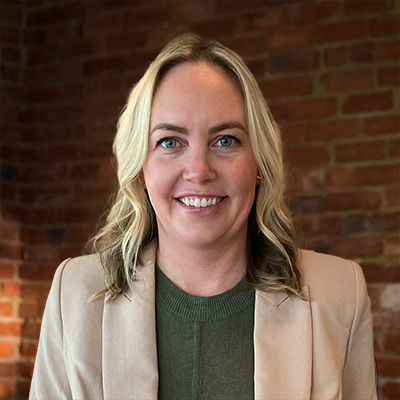Pathogens do not discriminate. While many big agriculture companies have safety standards and legal protections in place, many small farms do not.

Farmers markets are growing in popularity, as many people prefer local produce for a more sustainable farm-to-table experience. The food tends to be fresher, as grocery store produce is often in refrigerated storage, having traveled from long distances. In addition to enjoying the community experience of a farmers market, people also like that many small farms offer organic produce that is free from pesticides. But does this make the produce safer?
“There’s nothing inherently true that food from small or organic farms is safer,” says Rachel Armstrong, founder and executive director of Farm Commons, a non-profit providing legal guidance for sustainable farming.
In fact, food can become contaminated even if the soil tests safe. A farmer could come into work with the norovirus, or Listeria monocytogenes can enter on farming equipment or a worker’s boots.
“I see a lot of starry-eyedness,” Armstrong adds. “Many think they can rely on common sense and intuition. But some of this is not necessarily intuitive. There’s also the role that expertise, studies, research and scientific inquiry plays in this. It goes further than the common sense that might be used in a household.”
Foodborne illness is a serious public health issue that can cause injuries or death. In order to avoid foodborne illness and outbreaks, food producers and distributors need to know and implement appropriate safety procedures and strategies, like the ones recommended by Farm Commons.

In addition to being a public health issue, foodborne illness, especially outbreaks that result in litigation, can have devastating financial consequences upon both large agricultural companies and small farms. However, whereas large agricultural companies generally have commercial insurance to fall back on, many small farms do not have insurance, which can put them at risk of going out of business.
The benefits of small farms obtaining insurance coverage is two-fold. First, it would help small farms to weather the financial burden of an outbreak. Second, it could prevent the outbreak from happening in the first instance, because in order to obtain insurance coverage, small farms would need to comply with food safety regulations, create a record-keeping system demonstrating food safety diligence, and implement a food safety plan, among other practices.
As our society becomes more focused on sustainable, local produce, it is necessary for small food producers, not just large agricultural companies, to implement safety standards in order to prevent foodborne illness.
If you or a loved one have experienced a foodborne illness due to the negligence of another, you may be entitled to compensation. Call Allen & Allen today for a free consultation, at 866-388-1307.




